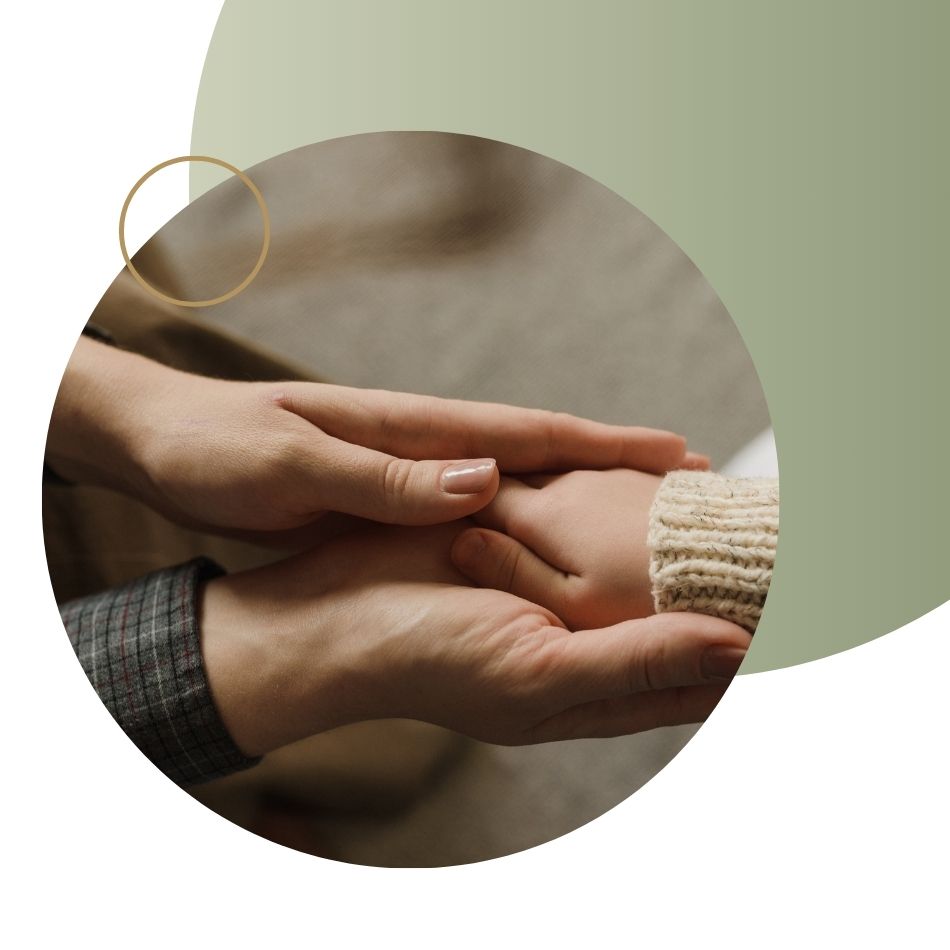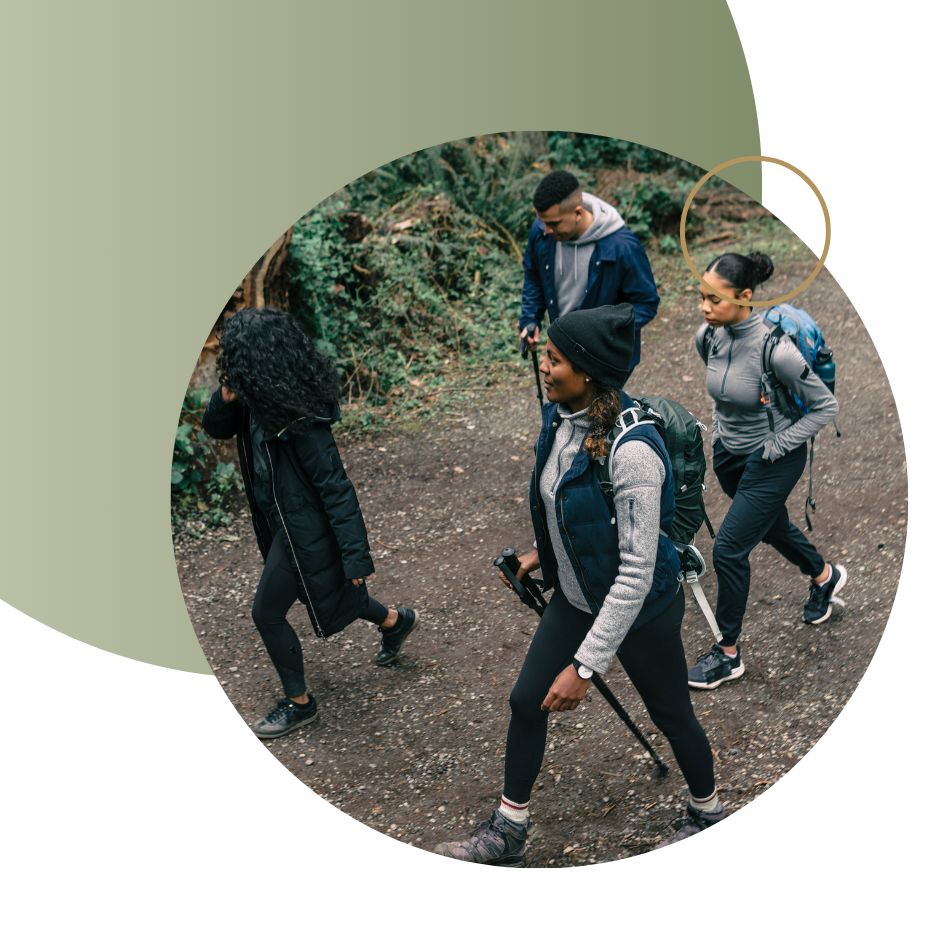When someone you love is struggling with addiction, the world suddenly feels both very small and unbearably loud. Everyone has an opinion, friends, family members, mental health professionals, strangers on the internet. Most of the advice revolves around the same formulas: 12-step programs, tough love, inpatient rehab. Many are told, “if they don’t really want it, you’re wasting your time,” which is impossible to hear when it involves someone you love so much.
When the System Didn’t Work: A Personal Recovery Story
Nicole Bleau

What happens when none of the systems work?
Let me begin with something important: my loved one wanted help, which is a necessary part of recovery. Not right away though; it took years for my sister to admit it. The truth is, she wanted help for a long time, but she was afraid and felt too ashamed to ask for it. She felt like she deserved the life she had been living and that it was too late for her. People who want help still struggle to refrain from using substances. My point is that when you are told, "if they don't really want it, it's a lost cause," they don't understand the complexity of addiction.
At the heart of our story is a woman who wanted a different life and needed help. And when she was ready, she agreed to leave everything behind and move to Colorado to stay with me. It didn’t come without a fight, fear, or hesitation. She flinched at the last moment, and resistance showed up at the gate, quite literally. But she got on the plane. She chose hope. And I was right there beside her, flying home together toward something new.
We didn’t follow the traditional recovery roadmap. In fact, traditional programs had already failed her multiple times. Traumatic experiences with therapists and psychiatrists as a child deterred her from turning to mental healthcare. Her abusive relationship prevented her from accessing detox centers. NARANON and 12-step programs didn’t touch the roots of her pain. Her, like many, couldn’t afford a residential program. Even if she could, domestic violence and drug-dependent relationships that kept her stuck for years would only encourage relapse. Recovery for her wasn't going to come from the system. It had to come from something radically different.
What worked, for her, was a complete reset. Addiction thrives in familiarity. The same streets, the same faces, the same routines. So we removed her from all of it. We created distance, physical distance, from the life that was keeping her sick. It was the only option.
We were incredibly fortunate to be able to do that. I had a village of compassionate and kind people behind me. My co-workers welcomed her into my workdays without judgement so she was never left alone. My partner opened our home and our hearts, and we made our space hers. I know this isn’t a possibility for everyone, and I don’t take that for granted.
Still, I believe the core of what worked can be accessed by others. The foundation was built on three essential things:
Trust: My sister trusted me and my family. My family and I worked every day to keep that trust alive throughout her addiction. Rather than give her money, my family would offer to bring her food, offer to fill her gas tank, etc., to ensure she was safe and had the necessities. This allowed us to at least have eyes on her, to know where she was. My parents ensured she knew that she could stay with them if she needed to, their doors were always open for her. They continued to invite her to family events even though she eventually stopped coming around altogether. I never stopped begging her to move to Colorado to live with me, and that her expenses would be covered. She would always say, “I know,” “that would be so nice,” “I have to figure some things out first.” After years of this, she finally agreed. And that trust was what made it easier for her to take action.
Patience/Time: I committed to what could be years of inconvenience and emotional labor, putting her healing above my comfort. I understood that the progress wouldn’t be linear. It did, in fact, take years, and it definitely was not linear. Patience was necessary both during her addiction and during her recovery. I had no choice but to be patient throughout her addiction and choose kindness even when I wanted to explode with anger, knowing that I may still lose her. This steady, quiet persistence ultimately led to her accepting my offer of help when she was ready. And time allowed her to go through the necessary steps and milestones in the recovery process. There’s no pre-determined time frame for healing. So if you are helping a loved one in this way, be prepared to dedicate years to the process. And if you expect immediate abstinence from substances, please remove that from the expectations. Of course, that is a goal, but realistically, your loved one will turn to other addictive alternatives and relapse along the way. Approaching these parts of the process with both understanding and accountability is the key. For us, I told her that alcohol was no longer allowed in the house because I saw that it was hurting her, and mixing alcohol with methadone could be lethal. I reinforced that with the fact that I love her too much to allow her to resort to drinking as a coping mechanism. She didn’t necessarily stop drinking right away, but she did respect my rule to not bring it into the house. Even though I was angry and wanted to scream at her (we did fight many times, like I said, this process is not pretty and we are only human), I had to remind myself that she was completely off of heroin and fentanyl. And she was finally under my safety, removed from her former environment, and that was an extreme win worthy of celebrating.
Willingness: Willingness from both parties. She wanted this. She told me clearly: “I need help, and I’ll follow your lead.” She was still using at the time, but the desire for a better life was there. Me, my family, and friends were willing to support her. When she got on the plane, her recovery had started.
Understanding Medication Assisted Treatment
It wasn’t easy. It took compromise, flexibility, and patience. I didn’t have all the answers. But I made one critical decision early on: I helped her access medication-assisted treatment (MAT), before I fully understood what it meant or how vital, and also troublesome, it would become.
She told me MAT would help ease the withdrawal symptoms and cravings, and I trusted her. That trust was not misplaced. There’s still stigma around MAT, but I can say without hesitation: it helped save her life.
Every morning, I drove her to the methadone clinic. Rain or shine, weekday or weekend, we made that trip together. It became our rhythm. A new kind of normal. It wasn’t glamorous, but it was honest. Real. Grounded.
There were no slogans. No dramatic interventions. Just quiet, deliberate choices. One dose at a time. One day, one week, one year at a time. She was slowly building a life.
Healing through trust and safety
Recovery, for her, wasn’t about surrendering to a system. It was about reconnecting with herself, and doing it in a space of love, safety, and understanding. She didn’t trust medical professionals or therapists, she trusted me and my family, and the regular people who helped her adjust to her new life. It was about allowing enough time. We didn’t wait for a perfect plan (we didn’t have one). We just responded to what was real, every single day.
Eventually, she decided on her own that she was ready to start decreasing her methadone dose. After she was fully off of methadone, her mind and body began to heal two-fold. And from there I got to witness her finding joy in things she used to love, rebuilding new neuro pathways, new dopamine receptors. I’ll never forget when she told me she had dreamt for the first time in years. Or when she started to actually feel her emotions again and start to process those emotions…Words can’t fully describe what we went through.
For those experiencing something similar
Boundaries matter. And you can set them without disowning someone or using shame as a weapon. You can love someone fiercely and hold them accountable.
You can’t pour from an empty cup. The emotional and physical toll is real. Anyone beginning their journey helping a loved one in this way, you must prioritize your own mental health and wellbeing. Talk regularly with a therapist who understands addiction; talk with trusted family and/or friends that you can vent to or speak freely without judgment. You will need healthy outlets to release these emotions and anger directed away from your loved one.
Our journey wasn’t just about abstinence. This was about reclaiming life and dignity. Remember, abstinence is not the most important goal. That will come with time as the person continues their healing journey. Sometimes, many things need to heal within someone before complete abstinence is achieved.
Sometimes recovery begins with a simple act of belief:
"You can call me for anything.” “You can come stay with me.” “You don’t have to do this alone."
Know this too, it’s possible that this will not save them. And if this is the case, know that you did not fail them. This is not an indicator that you didn’t do enough, that they don’t care, or that you didn’t love them enough. If you don’t have the resources or support systems as I did in my experience, or if your loved one doesn’t achieve the outcome you want for them, this is not a reflection or measurement of how hard you tried, how hard they tried, or how much you care. Addiction is a powerful and devastating disease.
To those of you out there loving someone through addiction: I see you. I know how hard it is. And I want you to remember that sometimes the best path forward isn’t the one everyone recommends. Sometimes, it’s the one you build together, step by step, even if no one else understands.

Our Mission at Fountain Wellness
Christina and I formed Fountain Wellness to help individuals and families who are going through similar experiences with mental health and substance use disorders. Our mission is to help those in recovery stay on track and thrive in life. Our vision is to re-create our village, a judgement-free community of compassionate people who understand what you are going through, so you don't have to do this alone.
We aren’t just navigating addiction in many of these cases. We are also navigating trauma, domestic violence, socioeconomic disparities, stigmatization, disabilities, co-occurring disorders, and other barriers that present challenges for those in recovery. We incorporate a harm reduction model with a focus on accessibility and flexibility to ensure that our clients’ unique needs are understood and treated accordingly. Because healing from addiction is not one-size-fits-all.
From the start of forming our company, it was imperative that our professional team of therapists have a personal connection and experience in this line of work, along with a wide range of skills and resources to navigate the complexities of substance use and mental health disorders.
Here, you will find a team of both regular people and mental health professionals who have shared experiences with addiction. And you will find a life-long community who is here to support you through the ups and the downs.
Ready to Start?
We are here for you when you are ready. We are an email, text, or phone call away.
Not ready for therapy?
Join one of our sober wellness outings that occur in-person monthly to connect with us on a lighter level.
